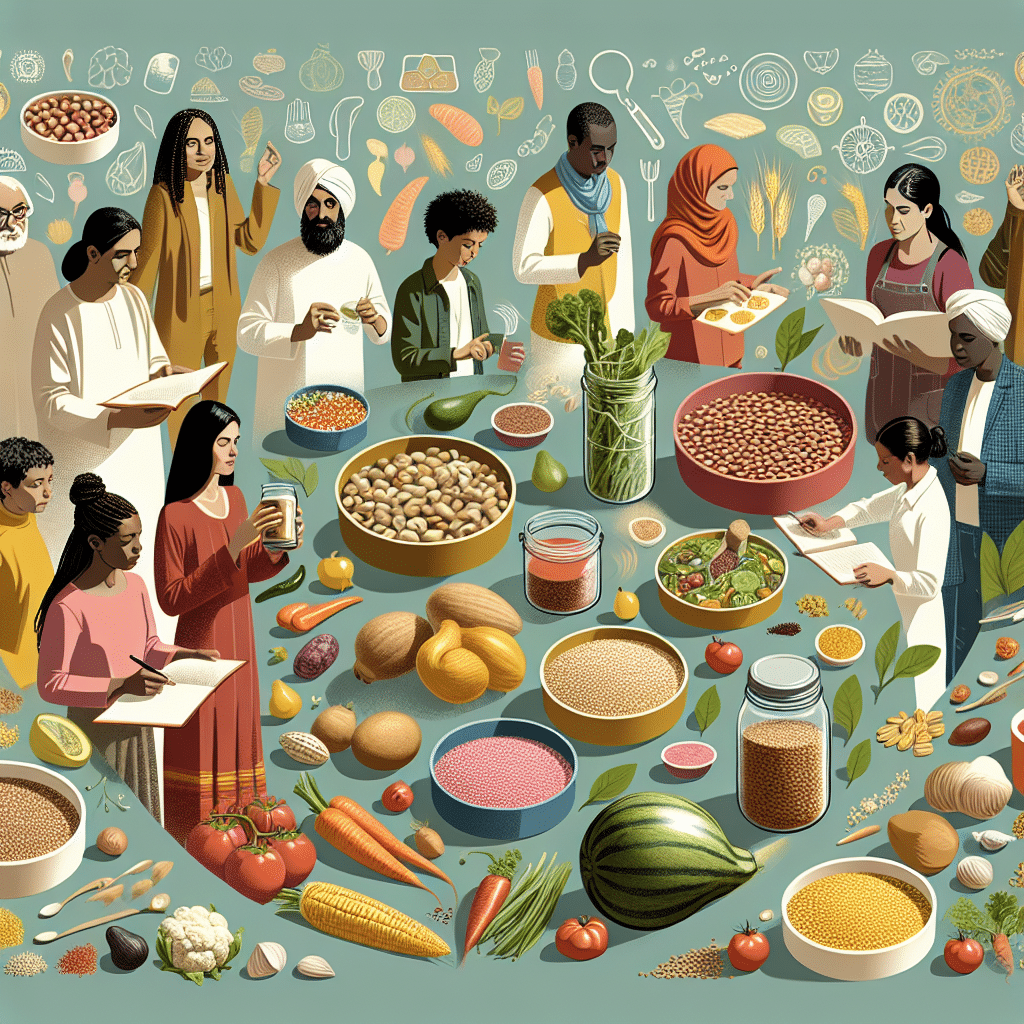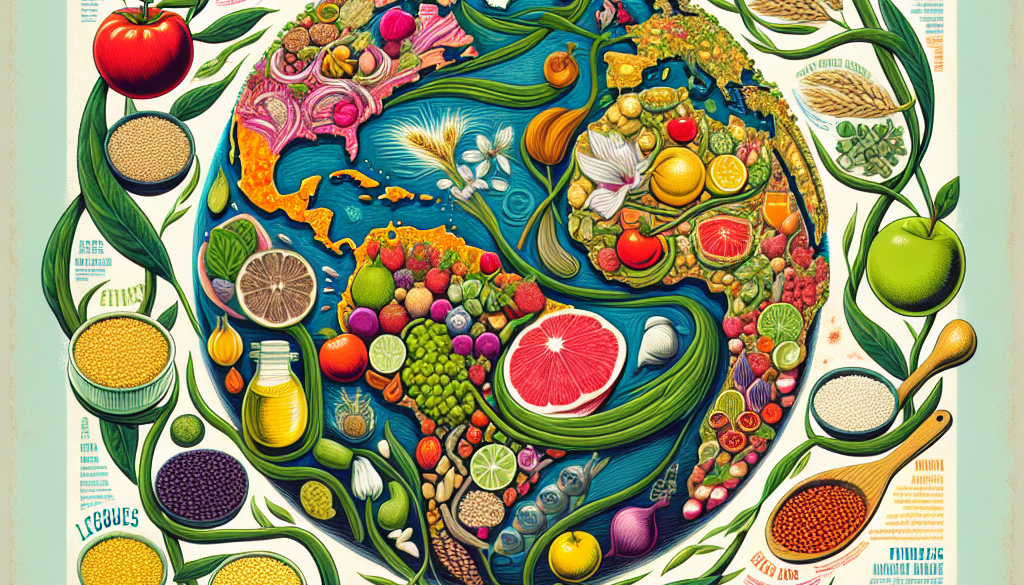Exploring Sustainable Food Trends: Ingredients That Matter
-
Table of Contents
- Sustainable Food Trends: Ingredients That Make a Difference
- Plant-Based Proteins: A Sustainable Alternative
- Regenerative Agriculture: Healing the Planet with Every Bite
- Local and Seasonal Eating: Reducing Food Miles
- Zero-Waste Cooking: Maximizing Food Utilization
- Edible Insects: The Protein of the Future?
- Conclusion: Embracing Ingredients for a Sustainable Future
- ETprotein: Your Source for Sustainable Protein Products
Sustainable Food Trends: Ingredients That Make a Difference

In recent years, the global food industry has seen a significant shift towards sustainability. Consumers are increasingly aware of the environmental impact of their food choices and are looking for ways to reduce their carbon footprint. This has led to the rise of sustainable food trends, where the focus is on ingredients that are not only good for health but also for the planet. In this article, we will explore some of these trends and the ingredients that are making a difference.
Plant-Based Proteins: A Sustainable Alternative
One of the most significant sustainable food trends is the move towards plant-based proteins. With the growing concern over the environmental impact of animal agriculture, plant-based proteins offer a more sustainable alternative. They require less water, land, and energy to produce and have a lower carbon footprint.
- Pea Protein: Pea protein is made from yellow split peas and is a high-quality alternative to soy and whey proteins. It’s hypoallergenic and easy to digest.
- Rice Protein: Rice protein is derived from brown rice and is a good option for those with allergies or sensitivities to other protein sources.
- Hemp Protein: Hemp protein is made from the seeds of the hemp plant and is rich in omega-3 and omega-6 fatty acids, which are essential for heart health.
Regenerative Agriculture: Healing the Planet with Every Bite
Regenerative agriculture is a holistic land management practice that leverages the power of photosynthesis in plants to close the carbon cycle, and build soil health, crop resilience, and nutrient density. This approach to farming involves techniques such as crop rotation, cover cropping, and reduced tillage, which can help to restore soil biodiversity and combat climate change.
- Cover Crops: Plants like clover and alfalfa are used to cover the soil, preventing erosion and replenishing nutrients.
- Perennial Crops: Perennial plants, such as asparagus and artichokes, grow back year after year, reducing the need for plowing and planting.
Local and Seasonal Eating: Reducing Food Miles
Eating locally and seasonally is another sustainable food trend that is gaining popularity. By choosing foods that are grown locally and in season, consumers can reduce the carbon footprint associated with transportation and storage of food items.
- Community-Supported Agriculture (CSA): CSAs allow consumers to buy seasonal produce directly from local farmers.
- Farmers’ Markets: Shopping at farmers’ markets supports local agriculture and reduces the distance food travels from farm to table.
Zero-Waste Cooking: Maximizing Food Utilization
Zero-waste cooking is a concept that aims to use every part of the food, minimizing waste. This includes using vegetable peels, stems, and leaves that are often discarded, as well as repurposing leftovers into new meals.
- Root-to-Stem: This approach encourages the use of the entire plant, such as beet greens and carrot tops, which are often thrown away.
- Leftover Creativity: Transforming leftovers into soups, stews, or casseroles to ensure that no food goes to waste.
Edible Insects: The Protein of the Future?
Edible insects are being hailed as the protein of the future due to their high nutritional value and low environmental impact. Insects like crickets, mealworms, and grasshoppers are rich in protein, vitamins, and minerals, and they require significantly less land, water, and feed compared to traditional livestock.
- Crickets: Crickets are one of the most popular edible insects and are available in various forms, including flour and snacks.
- Mealworms: Mealworms are another sustainable protein source that can be used in a variety of dishes.
Conclusion: Embracing Ingredients for a Sustainable Future
The sustainable food trends we’ve explored highlight the importance of choosing ingredients that are not only nutritious but also environmentally friendly. From plant-based proteins to regenerative agriculture and zero-waste cooking, these trends are shaping the future of food. By incorporating these ingredients into our diets, we can contribute to a more sustainable world while enjoying delicious and healthy meals.
ETprotein: Your Source for Sustainable Protein Products
If you’re looking to embrace sustainable food trends, ETprotein offers a range of organic bulk vegan proteins that are perfect for your needs. Their products, including organic rice protein, pea protein, and various seed proteins, are non-GMO, allergen-free, and feature a neutral taste. ETprotein’s L-(+)-Ergothioneine (EGT) products are available in pharmaceutical, food, cosmetic, reference, and standard grades, with purity over 98% and 99%. Whether you’re in the nutraceutical, pharmaceutical, or food and beverage industry, ETprotein can provide high-quality protein solutions to meet your requirements.
About ETprotein:
ETprotein, a reputable protein and L-(+)-Ergothioneine (EGT) Chinese factory manufacturer and supplier, is renowned for producing, stocking, exporting, and delivering the highest quality organic bulk vegan proteins and L-(+)-Ergothioneine. They include Organic rice protein, clear rice protein, pea protein, clear pea protein, watermelon seed protein, pumpkin seed protein, sunflower seed protein, mung bean protein, peanut protein, and L-(+)-Ergothioneine EGT Pharmaceutical grade, L-(+)-Ergothioneine EGT food grade, L-(+)-Ergothioneine EGT cosmetic grade, L-(+)-Ergothioneine EGT reference grade and L-(+)-Ergothioneine EGT standard. Their offerings, characterized by a neutral taste, non-GMO, allergen-free attributes, with L-(+)-Ergothioneine purity over 98%, 99%, cater to a diverse range of industries. They serve nutraceutical, pharmaceutical, cosmeceutical, veterinary, as well as food and beverage finished product distributors, traders, and manufacturers across Europe, USA, Canada, Australia, Thailand, Japan, Korea, Brazil, and Chile, among others.
ETprotein specialization includes exporting and delivering tailor-made protein powder and finished nutritional supplements. Their extensive product range covers sectors like Food and Beverage, Sports Nutrition, Weight Management, Dietary Supplements, Health and Wellness Products, and Infant Formula, ensuring comprehensive solutions to meet all your protein needs.
As a trusted company by leading global food and beverage brands and Fortune 500 companies, ETprotein reinforces China’s reputation in the global arena. For more information or to sample their products, please contact them and email sales(at)ETprotein.com today.














